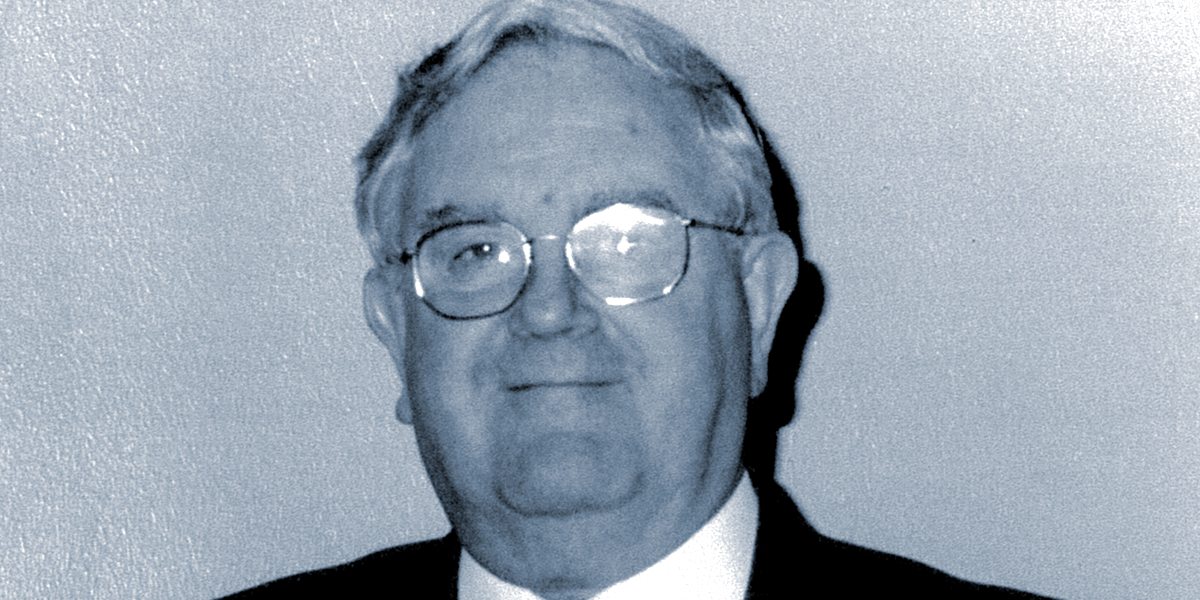‘Research ought to be risky’
Sir Derek Roberts looks back on his time on the Ludwig Institute’s Board of Directors.
After serving 14 years on the Ludwig Board of Directors, Sir Derek Roberts stepped down this past June. An engineer who twice served as provost of University College London (UCL), from 1989 to 1999 and later from 2002 to 2003, Sir Derek oversaw several successful projects and expansion during his tenure including the merger of UCL and the Institute of Child Health in 1996. He remains a trustee of the Ludwig Fund, a position he has held since 2002. We had an opportunity to chat with Sir Derek about his tenure on the board and the Institute changes he witnessed during those years.
What is special about being part
of Ludwig?
Ludwig embodies several characteristics that make it different from other research organizations. The mission and resources of the Institute have never deviated from the ongoing commitment to innovative basic and clinical cancer research. The Institute has also been extremely successful in identifying outstanding individuals and giving them the freedom to develop their own research initiatives. And it offers an environment that allows its scientists to tackle risky research challenges and fully explore the potential of their work.
With your exposure to research, what do you see as particularly distinct or unique about the Institute?
Research ought to be risky. What struck me right from the very beginning and is particularly important today is the unwavering commitment to innovative research and the stable, long-term funding Ludwig offers its scientists. This allows them to concentrate on their research and not spend all of their time making unsuccessful bids from the traditional funding agencies. Sustained funding has and will continue to lead to fundamentally important advances in the care of patients and will ultimately save lives and improve outcomes.
What is the most important characteristic of an effective board member?
Curiosity. There has to be a willingness to learn coupled with a clear understanding of his or her role and responsibilities on the board. The Ludwig board has three primary roles: to establish policies, approve significant and strategic decisions, and oversee the Institute’s activity. An effective board member has to be open-minded, focus on the Institute’s objectives and strategies, and resist the temptation to micromanage.
What was the most important change in the Institute that you observed during your tenure?
There were two. In the early years under Lloyd Old’s leadership, there was a growing emphasis on clinical research that not all basic research institutions found themselves in a position to undertake. The second was the recognition that the widely dispersed, small-branch model was not sustainable given the available resources. The decision to concentrate the Institute’s research activities was designed to attract leading international scientists; allow the Institute to improve its use of external funding opportunities; and provide adequately equipped, state-of-the-art research facilities for basic research activities.
What advice would you give your successor?
Promote the common vision we share, build on the Institute’s strengths and continue to sustain the superb accomplishments Ludwig has achieved. My successor doesn’t need to be a cancer expert but he or she does need to appreciate that cancers are extremely diverse diseases and Ludwig researchers need the security of predictable, long-term funding. This will allow them to undertake groundbreaking research and advance the frontiers of cancer research.
What will you miss the most?
Serving on the board was both a privilege and an honor. I’ll miss the interaction and camaraderie of the group and the wonderful work and intensity that the board brings to its responsibilities and tasks. The frequent contact I enjoyed with Ed McDermott and Andy Simpson will be the biggest gap in my life.
What was it like being knighted by the Queen?
The family joke is that I only accepted to make my wife a lady. Seriously, I had been to the palace on prior occasions. Before I was given the knighthood, I was awarded the Commander of the British Empire. I also attended a small luncheon with the Queen and the Duke of Edinburgh, a Queen’s Award ceremony on behalf of UCL and a garden party with my wife. So I wasn’t so awestricken by being in the palace as I might have been. Let me just say that I’m more of a Republican than a Royalist.
